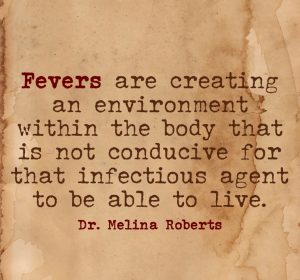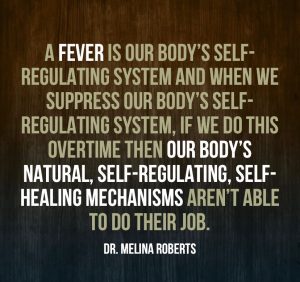Suppressing fevers can leave you more susceptible to chronic disease in the future.
People often see fevers as problematic, especially fevers in children. As soon as they see the fever, they get nervous and start to suppress the fever, by giving them fever-reducers when they have colds or infections. So we give them fever-reducers so they won’t have a fever.
The thing is that fevers are actually natural immune responses, they are healthy immune responses to an infection. Fevers are creating an environment within the body that are not conducive for that infectious agent to be able to live.
When we start suppressing our body’s natural, healthy immune responses, and when we suppress the immune system, overtime that immune system will stop reacting appropriately. A fever is our body’s self-regulating system and when we suppress our body’s self-regulating system, if we do this overtime then our body’s natural, self-regulating system, self-healing mechanisms aren’t able to do their job. This can leave us more susceptible to having chronic disease in our future.
This is why it is so important that when we have acute infections that we allow the body to do its natural, healthy, innate immune response, as opposed to suppressing that response.
I understand that when you have these tiny babies, well with the tiny babies you need to figure out the root cause of that fever, but for the toddlers where you know the fever is due to a cold or flu, you want to monitor that fever closely, keep the child well hydrated. And when you do this you are supporting your child’s natural immune response and then it allows their body to properly self-regulate and self-heal. This is actually a preventative plan for making sure that their body has the ability to self-regulate and self-heal as adults and when they can do this it helps to prevent chronic disease in their future.
I hope that makes sense and you understand that you don’t want to be suppressing fevers. You want to allow the body to express its self-regulating processes in the body.




